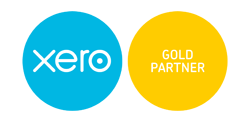Welcome Matthew McConnell, Senior Financial Adviser
We are thrilled to welcome another highly skilled adviser to our team!
Matthew McConnell joins us as a Senior Financial Adviser. Based in our Devonport office, he will provide financial planning services to our clients throughout Tasmania.
“I am looking forward to helping Synectic’s clients identify and achieve their personal, family and business goals. It’s important to me that I provide clients with information to clearly understand their options. Synectic provides a great match for this service philosophy”.




